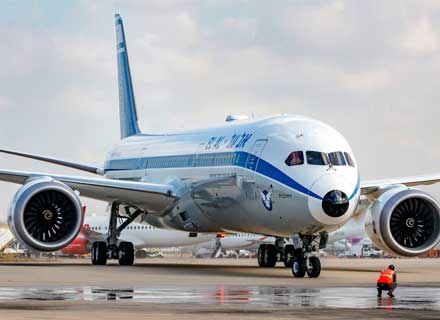One of the world’s longest unresolved conflicts escalated once again on October 7, when Hamas orchestrated an attack on southern Israel. Hamas is the democratically elected government in Gaza City, Palestine.
The immeasurable cost to lives and livelihoods aside, the economies of Israel, its neighbours, and the world at large are also taking a hit.
There are apprehensions of trade disruptions, oil price hikes, and further inflation compounding with the effects of Russia’s invasion of Ukraine. It is a tumultuous time, especially for the aviation industry.
Civilian air carriers have always found it incredibly difficult to operate in high-conflict regions. In 2020, Ukraine International Airlines Flight 752 was shot down minutes after taking off from Tehran, when Iran misinterpreted the flight as a US missile. Over 176 people died in the catastrophe. Ever since then, insurance underwriters have jacked up the premiums of flights operating in the region.
Now, due to the fighting in the region, aviation war insurers have issued notice to cancel coverage for some airlines based in Israel and Lebanon, with some cancellations already taking effect, according to three industry sources with direct knowledge of the situation.
In the case of a significant battle that they believe will increase the long-term insurance risk too much, aviation war insurers with bases in Europe, the United States, and the Lloyd’s of London market may give a seven-day notice of cancellation or other adjustments to terms and conditions.
The battle between Israel and the Palestinian organization Hamas allows insurers for the Israeli flag carrier El Al Airlines, Israir and Arkia to send such letters, according to earlier statements.
As part of a package of the country’s parliamentary finance committee, Israeli airlines will receive a USD 6 billion state guarantee.
Israir’s spokesperson said that the company had not received a warning from its insurance, but she gave no more information. Requests for a response from a Middle East Airlines spokeswoman in Lebanon were not immediately answered.
Israeli airlines have expanded flights to bring back travellers from abroad and those called up for military reserve service while the majority of international airlines have cancelled flights to Tel Aviv.
Airlines typically purchase two different forms of insurance: an “all risks” policy that covers both routine hull damage and passenger liability, and a “war” coverage that covers losses to the aircraft caused by war.
Concerns for aeroplanes grounded in conflict zones are another major issue for insurance. Following the exchanges of artillery, rockets, and missiles between Israel and Hezbollah, Middle East Airlines said this week that it will hold five of its twenty-four aircraft in Turkey.
Although there have been no cancellations of flights to or from airlines based outside of Israel and Lebanon, there have been additional restrictions, according to two industry sources.
A representative for the Aviation Group of Insurance Buyers’ Association Airmic stated that “Insurers want regular updates” because each airline has a unique risk profile and consequently uses distinct risk mitigation techniques.
According to the sources, the airlines are not yet subject to higher fares for their regularly scheduled flights.
To avoid refuelling stops at Tel Aviv or Beirut airports, for instance, or to limit the amount of time their aircraft can be left on the ground there, according to two sources.
According to one industry source, special flights to remove people from Israel would necessitate a “material change” to an airline’s policy, and airlines would have to pay an additional premium of between 0.05% and 0.1% of the aircraft’s value for those trips.
One policy may include up to 20 insurers, and it might be challenging to convince them all to agree to pay for a flight, according to sources.
Due to a lack of insurance to fly via Tel Aviv, Norwegian Air had to postpone an evacuation trip last week. However, the airline promptly organized a replacement route from the southern Israeli city of Eilat.
This unfortunate development comes at a time when airline stocks in North America and Europe are reeling from the effects of rising fuel costs, demand softness, and concerns about the overall global economic outlook.
As the war shows no sign of calming down, most international carriers have deserted Tel Aviv’s Ben Gurion airport. While some of them have reportedly promised Israel to regularly review the situation, other airlines are dropping extra capacity into destinations from which connections to Israel are still available.
Israel has been a popular tourist destination, with around 30 operators reportedly offering at least 50 return flights to the country in 2023 September. Even with the war taking violent shape currently, Ben Gurion airport is still open. However, carriers will have to make decisions regarding the security arrangements and the insurance costs, before they take any call on normalising the operations, given the fact that the country has been facing retaliatory rocket attacks frequently.
Local carriers are operating from Ben Gurion airport. However, the airline carriers operating closest to the unrest areas will be affected by factors like airspace restrictions, shifting passenger flows, demand reduction and the extra costs associated with a rapidly changing operating environment.
Also, conflicts in the Middle East have a tendency to push up oil prices, which can bring disastrous effects on the aviation industry. The industry’s third-quarter earnings season may witness the Gaza war’s potential impact on the overall outlook.
United Airlines, for example, has already warned of a ‘transitory hit to margins’ resulting from its Israel flight cancellation. As per the Cirium data, the North American airline was offering the most capacity into Israel leading into the war, at around 110 return services in September 2023.

